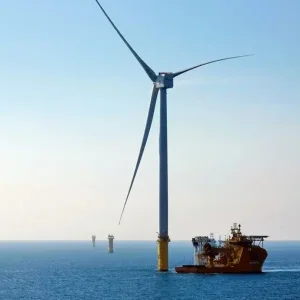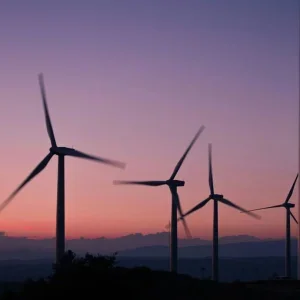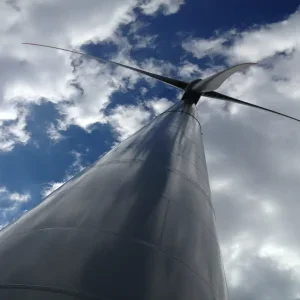Dr Ansgar Lauterbach, owner of the recruitment and staffing company DAL Zeitarbeit, feels the wind industry is facing challenges. "The recent lay-offs are just the beginning of something that will get worse," he says. "Right now, most nations are in debt, they do not know how they can pay their interest. All industry is affected by the crisis."
He is referring specifically to announcements by the likes of Vestas and Nordex which, coming in the winter of 2011-12, set an ominous tone for the year ahead. Vestas, for instance, started 2012 at an all-time low, having failed to meet its profit forecasts and only just succeeding in breaking even.
Lay-offs across the wind industry
Despite being the largest wind turbine manufacturer in the world, it had faced the double blow of plummeting sales and unexpectedly high production costs. Thus there was a tinge of inevitability when the company announced a new spate of job cuts, its third in three years; 2,335 people were to lose their jobs, with a possible 1,600 more redundancies in the pipeline.
At Nordex, meanwhile, there were 260 lay-offs, and Siemens saw a sharp fall in profits. While sales figures ebb and wane, as we move through 2012 the industry is holding its breath for still more losses.
From Lauterbach’s perspective, this is a question of a nascent industry in an economic downturn, struggling to find its feet. "Unfortunately, wind has one big problem – wind power is young, and does not have the financial power of traditional energy companies," he says. "For the banks, it’s easier to hand out the money to the European Central Bank than it is to invest it in a risky business. Young industries grow too fast and then, with the first hard blow of the economy, they have to reduce their head count."
His colleague Clive Laudham, director of DAL’s UK office, agrees. "Wind companies are reducing their costs by getting rid of people, because being a new industry, they’re not necessarily aware of the bigger issues that might come up," he says, before adding: "We’re not convinced that is the right way."
Mid-term optimism for wind power
Lauterbach and Laudham have met with me in a hotel lobby in London to discuss their thoughts on the market outlook. While acknowledging the difficulties for all concerned, they do not think the picture is unilaterally bleak.
"Every recession that comes goes away again sooner or later," says Lauterbach. "As soon as we have passed this recession, the prices for oil and gas will soar tremendously. Within a mid-term period, wind power will become more attractive."
"These things are cyclical," adds Laudham. "The technology is new, and it’s developing all the time – the offshore turbines are massive compared with what they were only a few years ago. Most of all, we’re upbeat because we know the government has no choice."
Policy, after all, is evolving in the direction of sustainability. As governments across the world commit to cutting carbon emissions, there will be ever more incentive to reduce consumption of oil and gas. Nuclear energy is also losing popularity. The Fukushima disaster in particular has prompted several European governments to alter their thinking, most notable in Germany’s nuclear U-turn.
While these newly prioritised industries face problems – not least the fact that the energy grids are still geared around nuclear – what is clear is that energy is very much a political issue. The onus rests on governments to provide support, investing into infrastructure projects and potentially creating tens of thousands of jobs.
"It’s a question of how politics will implement the new strategy despite the economic downturn," says Lauterbach. "The wind industry presents a lot of opportunities that could be very helpful for European governments in coping with the recession."
Potential turmoil in US market
If the situation in Europe leaves room for mitigated optimism, then the US poses a greater concern. There, the future of the wind industry hangs in the balance, with the production tax credit (PTC) due to expire at the end of 2012. Should this monetary incentive not be renewed, the industry will simply not be able to sustain itself.
According to a recent study by Navigant Consulting, the expiration of the PTC could mean the loss of 37,000 jobs within a year, dwarfing the scale of the challenges being faced in Europe. While the American Wind Energy Association is campaigning for the tax credit’s extension, there is a risk that the issue will be ignored amid the political clamour of the election. The industry remains hopeful that this will not come to pass.
"If the tax credit is not prolonged, the US will be more dependent on fossil energy than it’s ever been before," opines Lauterbach. "It would create a lot of problems, because it is a sign of self-elected isolation. If you only follow your own interests, separate from the global challenges, that’s not how politics should be organised in the 21st century."
From DAL’s perspective, the situation could lead US wind companies to focus their energies on Europe, selling their products in its thriving market. "We have the biggest wind companies in the world," says Lauterbach. "They all have a European spirit, and a European approach to quality. We build for the next generation – that’s the European approach."
Short-term staffing solutions
Wind power being here to stay, a primary concern is developing better training schemes and implementing a model whereby knowledge is passed on between generations. Unlike oil and gas, wind does not suffer the blight of an aging workforce. The industry being new and fashionable, there are plenty of young people interested, and it is incumbent on governments to invest in the appropriate courses.
"The Europeans have a training methodology leading to a passport of competencies within the industry, but the British don’t seem able to agree to a standard," laments Laudham. "If you have something in Europe that works, why are we reinventing the wheel? There’s a whole raft of things that can be done – the traditional apprenticeship for one."
In the interim, with more lay-offs a real possibility, companies like DAL Zeitarbeit are in a strong position to help. Through supplying flexible reserves of manpower wherever necessary, they can free up wind companies to focus on their core businesses. As long as there are turbines to be maintained, and incentives to cut the number of employees on the payroll, there will be a need for short-term staffing solutions.
For the wind companies, business models may have to adapt in light of the debt crisis and there are likely to be further frustrations ahead. This said, DAL Zeitarbeit believes there is great potential for the industry in the coming years, dependent on what governments choose to invest.
"It’s like the pipe is blocked; I think the recession is the thing that is holding the plug," says Laudham of the current governmental paralysis. "But once someone releases something, it’s all going to cascade out."






